 |
Picks is a monthly sampling of Japan's art scene, offering commentary by a variety of reviewers about exhibitions at museums and galleries in recent weeks, with an emphasis on contemporary art by young artists.
Note: Most of Japan's museums and galleries have reopened, but conditions and anti-coronavirus precautions vary. If you are planning a visit, please check the venue's website beforehand. |
 |
 |
 |
1 September 2020 |
 |
| 1 | 2 | |
 |
|
 |
 |
|
|
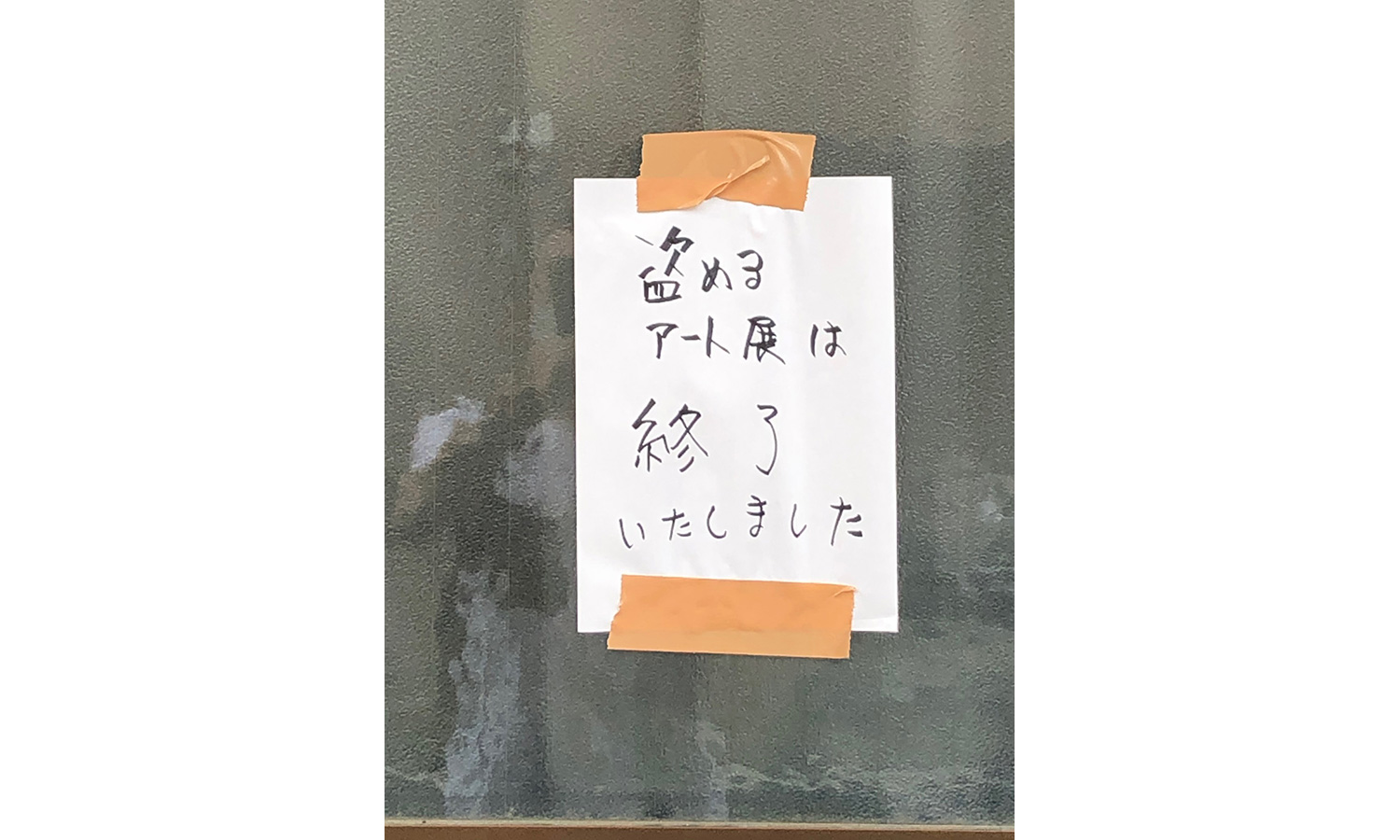 |
 |
| Stealable Art Exhibition |
| 10 - 19 July 2020 |
same gallery
(Tokyo) |
 |
| As the title makes clear, this was an exhibition of works that were meant to be stolen. The plan was to open the show at midnight on the tenth and let it run for ten days or until all the works had been taken. However, when this writer showed up at 9:40 the first morning, there was a sign hanging on the door announcing the show was already over. It turns out that by 11 the night before an unruly crowd had gathered outside the gallery, neighbors called the police, and the organizers had no choice but to open the doors a half hour early. The mob rushed inside and within ten minutes everything was gone.
|
|
|
 |
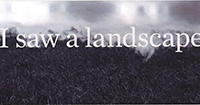 |
 |
| Jun Homma: I saw a landscape |
| 26 June - 22 July 2020 |
Void+
(Tokyo) |
 |
| A landscape photo printed on a large metal sheet has had its midsection scraped away with a file, and the exposed metal has been polished to a mirror-like sheen. The title, Landscape of Erosion - Oranienburg, refers to a Berlin suburb where the Nazis built a concentration camp. The boundary between the print and the scraped-away area is blurred so that it looks as if a band of smoke is hovering over the landscape, while the mirror surface reflects the world outside the picture, including the viewer. Learning the title inevitably alters one's perception of the work. |
|
|

|
 |
 |
|
 |
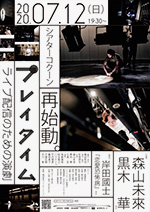 |
 |
| Theatre Cocoon: Playtime |
| 12 July 2020 |
Theatre Cocoon
(Tokyo) |
 |
| This was a "play for live transmission" planned as the reopening program of Theatre Cocoon, which had been closed for four months due to the pandemic. Audience seating was prepared for the occasion. The script was Tetsuya Umeda's Internship, which treats the organic movement of the physical mechanisms of a theater -- lighting, sound equipment, raising and lowering the orchestra pit, backstage staff operations -- as its subject matter. In effect, the production posed the question of whether it is feasible to simultaneously offer online and on-site theatergoing experiences.
|
|
|
|
|
|
|
|

|
 |
 |
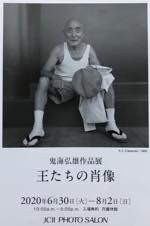 |
 |
| Hiroh Kikai: Ecce Homo |
| 30 June - 2 August 2020 |
JCII Camera Museum
(Tokyo) |
 |
| In 1973, Kikai began photographing people he encountered within the precincts of Sensoji temple in Asakusa, Tokyo. The portraits all have the same format: half- or three-quarter-length figures standing in front of the red temple wall. This 41-print presentation is culled mainly from Kikai's 1987 book Ecce Homo: Tokyo Asakusa: Photographs (Yatate Publishing). Though his subjects are all anonymous, ordinary people, they confront the camera with an aura of confidence and dignity. "Behold the man" indeed. |
|
|
 |
 |
| Tokyo Chronicle 1964-2020 |
| 9 June - 10 August 2020 |
Machida City Public Museum of Literature (Kotoba Land)
(Tokyo) |
 |
| A solid offering of some 200 items that exemplify the "half century of creativity surrounding Tokyo and the Olympics," as the show's subtitle puts it. This assemblage of works of literature, art, photography and design pivots around the two Tokyo Olympics of 1964 and 2020 (now postponed to 2021), a concept that works surprisingly well. Pride of place is given to two series of vintage prints by photographers Masaaki Kasuga and Hitomi Watanabe, both of whom captured powerful images of their respective zeitgeists. (See Here & There in the July 2020 issue for a detailed review.) |
|

|
 |
 |
 |
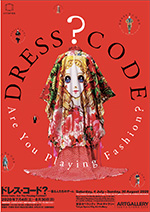 |
 |
Dress Code: Are You Playing Fashion? |
4 July - 30 August 2020 |
Tokyo Opera City Art Gallery
(Tokyo) |
 |
| A sociological exploration of the act of choosing and wearing clothes. Suits and school uniforms reveal social status and group affiliation; workclothes and military uniforms become fashion items unrelated to their original functions; fashion brands challenge us with provocative designs; and clothing worn by characters in films, stage productions and manga set new trends. Contemporary artworks and photographs by the likes of Yasumasa Morimura, Miyako Ishiuchi, and Kyoichi Tsuzuki address all these facets of attire, reminding us how it serves as a critical interface between the individual and society. |
|
|
 |
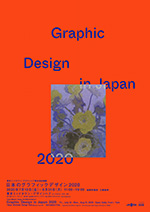 |
 |
| Graphic Design in Japan 2020 |
| 10 July - 31 August 2020 |
Tokyo Midtown Design Hub
(Tokyo) |
 |
| Marking the publication of the titular yearbook by the Japan Graphic Designers Association (JAGDA) was this exhibition of some 300 originals selected from the designs appearing in this year's volume. It proved an excellent opportunity to get acquainted with the whole spectrum of output by Japan's graphic designers and art directors -- posters, books, packages, merchandise, newspaper ads, videos and more. One standout was Haruka Misawa's ingenious paper-flower creation Sange "flowering in the air": The Consecration Rite of the Central Golden Hall of Kohfukuji Temple, which expanded the possibilities of paper as a three-dimensional medium and of graphic design in general. |
|
|
|
|
|
|
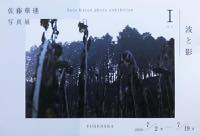 |
 |
| Karen Sato: I - Wave and Shadow |
| 2 - 19 July 2020 |
Communication Gallery Fugensha
(Tokyo) |
 |
| Born in 1983 in Kanagawa Prefecture, photographic artist Sato has been producing noteworthy work at least since her solo show I ("One") at the Kanzan Gallery in 2016. The Fugensha exhibition was no exception. Rather than reproduce the real world as is, Sato copies photographs multiple times in a process that progressively alters the image. The effect is to amplify the presence of the objects captured there; Sato describes it as "transformation via the filter of the self."
|
|
 |
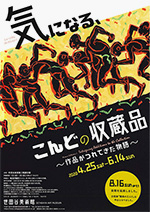 |
 |
| Intriguing Additions to the Collection |
4 July - 27 August 2020 |
Setagaya Art Museum
(Tokyo) |
 |
| The second floor of the museum was devoted to this introduction of 122 works acquired in recent years. That's a lot of art, but most were prints, watercolors, and other works on paper, while the oils were generally small-scale. Particularly eye-catching were four oil paintings by Tokue Hanazawa. Born in 1911, he started out as a furniture maker, studied painting with Yori Saito, and then, for some reason, became a film actor in the Toei stable. He painted the works shown here around age 80 (he died at 89). They are nothing if not unique, full of poppish deformation not seen in the work of others of his generation or era. |
|
|
|
|
 |
|